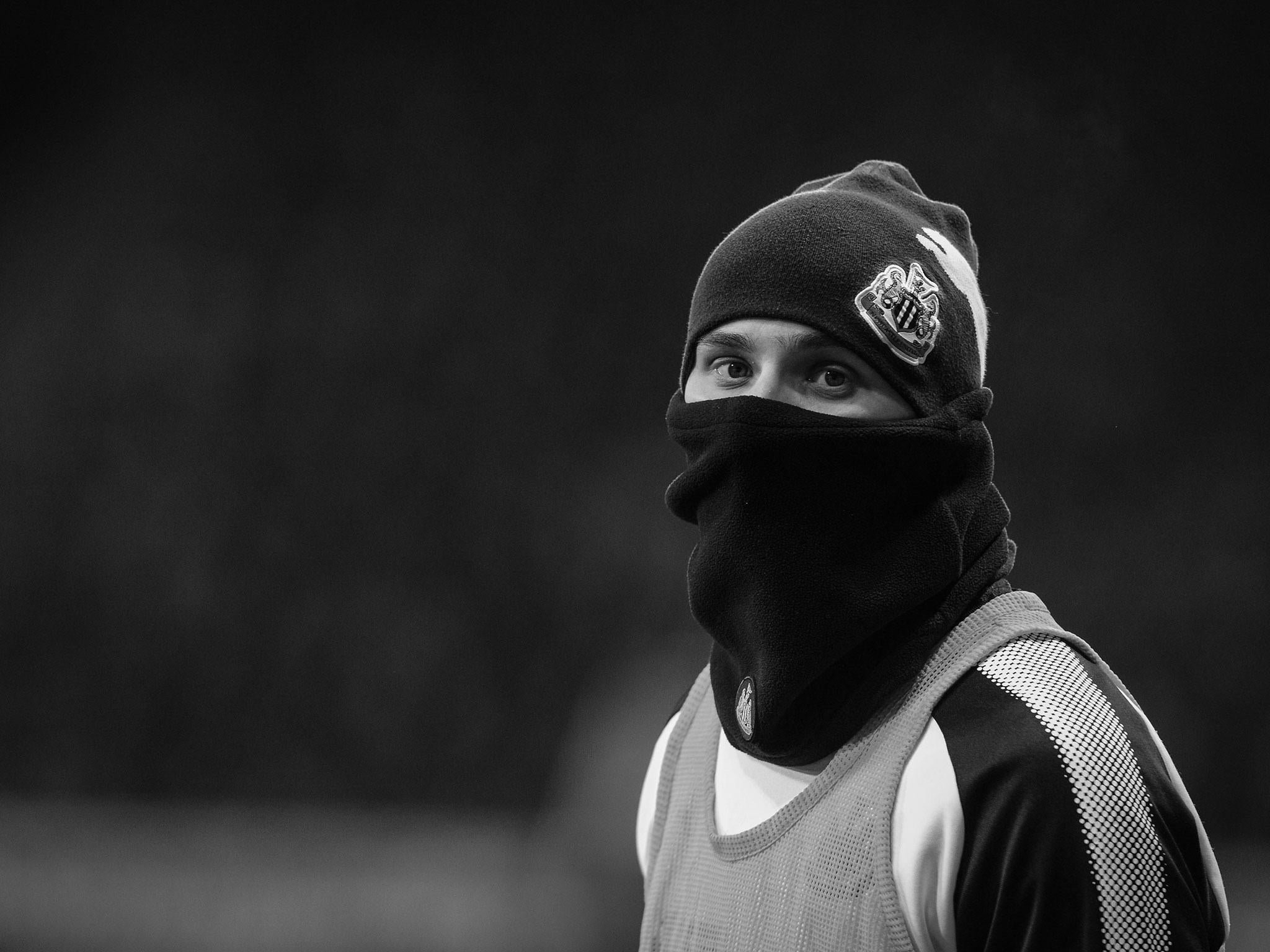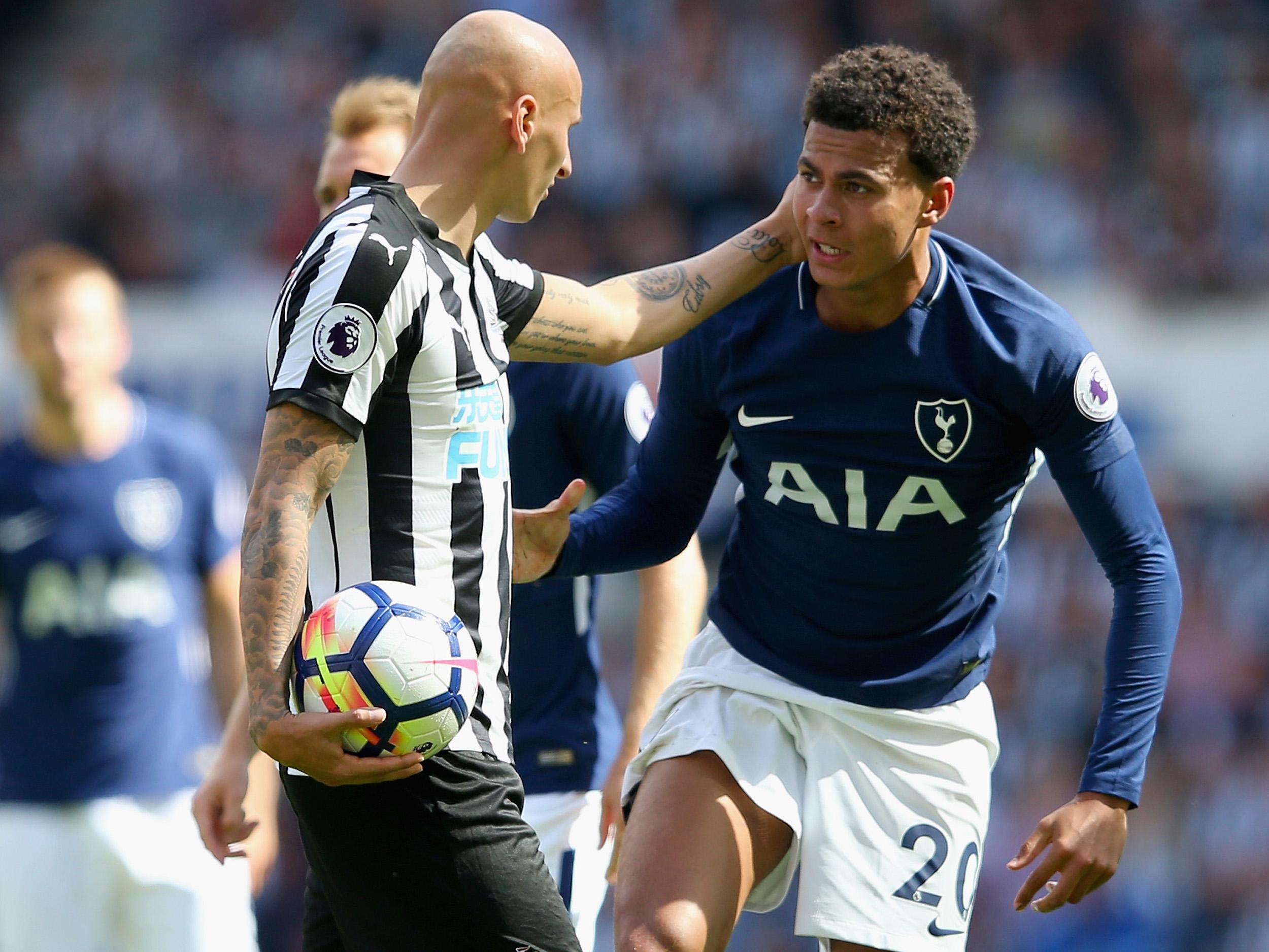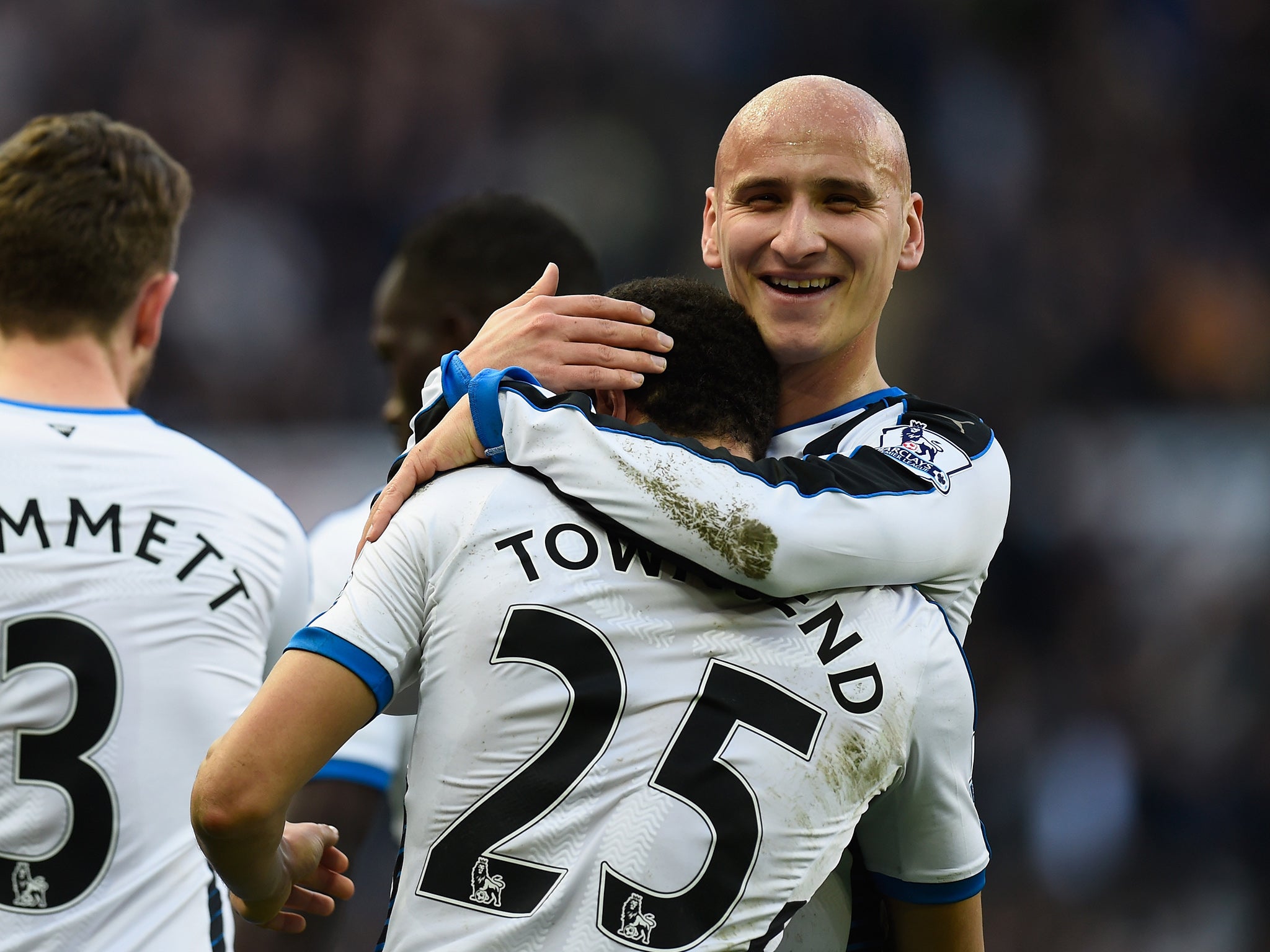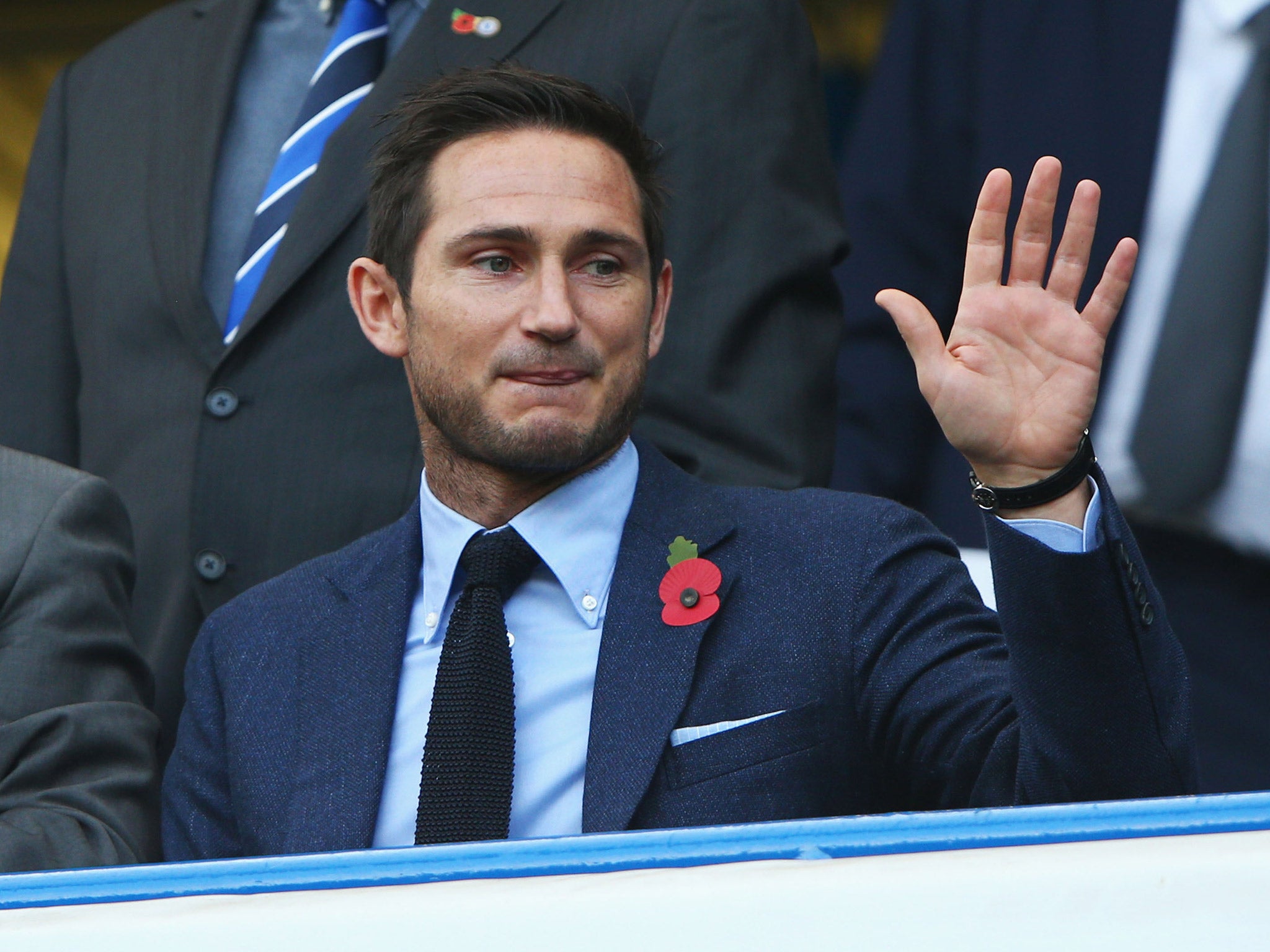From hero to zero - and everything in between: Jonjo Shelvey remains an enigma for Newcastle and England
Shelvey's hot-blooded nature has, at times, hindered his development but the player is now working to improve his discipline

Your support helps us to tell the story
From reproductive rights to climate change to Big Tech, The Independent is on the ground when the story is developing. Whether it's investigating the financials of Elon Musk's pro-Trump PAC or producing our latest documentary, 'The A Word', which shines a light on the American women fighting for reproductive rights, we know how important it is to parse out the facts from the messaging.
At such a critical moment in US history, we need reporters on the ground. Your donation allows us to keep sending journalists to speak to both sides of the story.
The Independent is trusted by Americans across the entire political spectrum. And unlike many other quality news outlets, we choose not to lock Americans out of our reporting and analysis with paywalls. We believe quality journalism should be available to everyone, paid for by those who can afford it.
Your support makes all the difference.The current season was just 48 minutes old when Jonjo Shelvey left a foot on Dele Ali’s leg and was sent off. His dad, in frustration at the dismissal, drove straight back to London from St James’ Park without saying a word while Shelvey went home and sat in a room on his own, ignoring company downstairs.
It ruined August, and a campaign that was supposed to see the midfielder carry his form from the Championship into Gareth Southgate’s squad for the World Cup finals in Russia was off to a bad start.
By the time his suspension was finished, the morning routine had changed as well. At that point Shelvey would drive his friend Jack Colback to Newcastle’s Academy, where he had been told to train after a row with Rafa Benitez, turn the car around and drive himself to training at the club’s first-team facility, around half a mile away. It has been that kind of season.
Last Saturday came a brutal put down from Frank Lampard on Match of the Day, when he accused Shelvey of walking and not picking up his man during the move that led to Bournemouth snatching an unlikely point against Newcastle in the final minute, after having trailed 2-0.
There was no mention of the five blue-shirted Newcastle players in the visitors’ penalty area, who should have dealt with the danger. There was also no mention that Shelvey had been moved further forward, into a No 10 role, following the precautionary withdrawal of the centre forward Dwight Gayle. Ayoze Perez had been pushed further forward, as had Shelvey. It was an important fact overlooked.
The following night, Benitez privately defended the player, insisting it was not his man that had scored and that he had done nothing wrong. Benitez broke one of his rules on Friday to discuss the harsh criticism from Lampard. “I was not happy with the comments,” he said. “I was also not happy with the fact some players could do more in defence.”
Exonerated by his manager, but still, mud sticks and the vision and execution of the right-footed pass in the first half that had created Newcastle’s opening goal was forgotten.

The power of that brief analysis is large. Shelvey had been Newcastle’s best player in the previous week’s dramatic victory against Manchester United. Then, the praise had been gushing from Alan Shearer. Shelvey tackled, ran, and made key interceptions and key passes. He helped chased Paul Pogba out of the game. A week later he had gone from hero to villain, once more.
That has been a theme since he emerged as youngster at Charlton, before he was signed for Liverpool, by Benitez. It perhaps explains why Shelvey keeps his own counsel. Even in Lampard’s dissection was the admission of a superb, cutting through-ball, but in the disappointment of a stuttering campaign is the fact that the pressure he could have put on Southgate’s central options – Jordan Henderson, Jake Livermore and Eric Dier – has probably gone. Indeed, whatever limitations and indiscretions Shelvey has, he certainly possess more vision and capability with a football than any of that trio.
His season was disrupted further by a second sending off, against Everton. Last year, even in an outstanding campaign, he was given a five-match suspension and a £100,000 fine after an FA misconduct charge against him was found proven for abusive and/or insulting words towards the Wolves player Romain Saiss.
Shelvey to this day maintains his innocence. He had been sent off earlier in the campaign, at Nottingham Forest, and despite that red being overturned, he went to see help.

That there is a desire for Shelvey to change is perhaps revealing. In a recent interview he spoke about a notebook he carries everywhere with him, on the advice of the psychologist he went to see following that angry display at the County Ground.
“He bought me a little black notebook, and after training and games I’ll write three things down that I’ve done well and three things that I didn’t do well,” said Shelvey.
“I’ll take it to the golf as well and I’ll write after every hole, what club I’d hit and how I hit it, things like that. It helps, because you’ve got something to read back and something to learn from. I’ll keep doing it.
“He’s always on the other end of the phone and he’s always helping out. It can take five or ten minutes sometimes, but he’s just there if I ever need him. It’s not just going to happen overnight. It’s a long process and it’s one that you have to be dedicated to or it ain’t going to work.
“It’s second nature now. I just do it without even thinking. I’d never, ever think to myself ‘my book’s there, I’ve got to go and do it’. It’s straight out, do it and then back in the bag. No-one knows I’ve started doing that, but it’s not the end of the world if people know.”

There is a desire to change. There is also a dedication that gets largely overlooked. In the summer of 2016 Shelvey hired his own personnel trainer in a bid to shed seven kilos. It worked. He was a reason the club were promoted at the first attempt.
In September last year Graeme Souness said of the player: “There are lots of midfielders who are about possession but he wants to hurt you all the time with a pass. A modern midfield player gets away with murder these days because they are allowed to go sideways and the stats say they have kept the ball all day. He has an edge to him, which I love in a player.”
Now, on top of everything there is a worrying knee injury, picked up when he collided with his own goalkeeper, Martin Dubravka. It has been that kind of campaign, too stop-start to reach the World Cup finals, but it does not, however, mean he should be written off for offering a more cultured and creative vision of an English midfielder, no matter what Lampard says.
Join our commenting forum
Join thought-provoking conversations, follow other Independent readers and see their replies
Comments